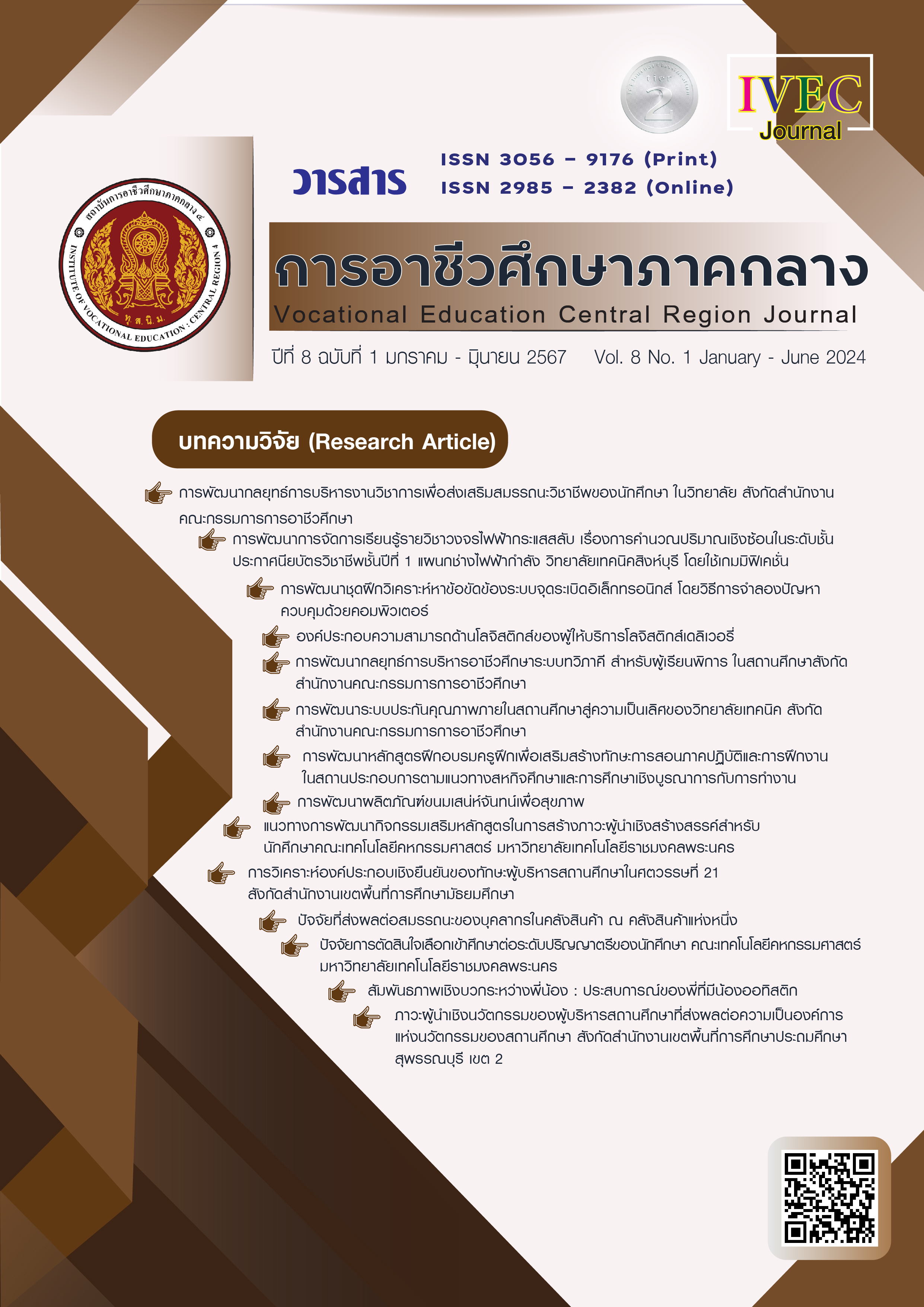Positive Sibling Relationship : Experiences of Older Adult Siblings of Individuals with Autism
Main Article Content
Abstract
Research studying the positive relationships among siblings of autistic individuals, especially within adult sibling groups, remains limited. The purpose of this research is thus to expand the body of knowledge regarding the development of positive relationships between siblings with one being autistic, from the perspective of a non-autistic older sibling. The study aims to answer the research question, "How does the positive relationship between developmentally typical siblings and their younger autistic sibling develop?", through the use of Interpretative Phenomenological Analysis (IPA) Methodology. The data were obtained through photo-elicitation interviews with six participants who are older siblings aged 21 and above with an autistic younger sibling. This research article presents the results showing two key factors that foster positive relationship between developmentally typical siblings and their younger autistic sibling. The first main theme is the family plays a significant role in the development of the relationship between siblings, with two sub-themes: 1.1) The mother influences sibling relationships and 1.2) The expression of family members affects the elder sibling's feelings. The second main theme is sharing a life closely since childhood fosters positive sibling relationships, comprising four sub-themes: 2.1) Living together enhances the older sibling's understanding of their autistic sibling; 2.2) Living together facilitates mutual acceptance between siblings; 2.3) Engaging in new activities together aids in bonding between siblings; and 2.4) Changes in age phases affect the development of sibling relationships. 3) “The younger siblings are important to older siblings”, comprising two subthemes, i.e., 3.1) The sibling is part of the life journey, and 3.2) The sibling influences decision-making in life paths. The research results not only enhance understanding about the positive relationship between siblings in families with autistic individuals but can also be applied in developing appropriate counseling services for the well-being of siblings and families with autistic members. This is to help ensure that members of these families receive appropriate psychological and social support in caring for and fostering positive relationships with family members who have autism.
Article Details

This work is licensed under a Creative Commons Attribution-NonCommercial-NoDerivatives 4.0 International License.
|
บทความ ข้อมูล เนื้อหา รูปภาพ ฯลฯ ที่ได้รับการตีพิมพ์ในวารสาร การอาชีวศึกษาภาคกลาง ถือเป็นลิขสิทธิ์ของวารสารการอาชีวศึกษาภาคกลางหากบุคคลหรือหน่วยงานใดต้องการนำทั้งหมดหรือส่วนใดส่วนหนึ่ง ไปเผยแพร่ต่อหรือเพื่อกระทำการใด ๆ กองบรรณาธิการไม่สงวนสิทธิ์ ในการคัดลอกบทความเพื่อการศึกษาแต่ให้อ้างอิงแหล่งที่มาให้ครบถ้วน สมบูรณ์ สงวนสิทธิ์ โดย สถาบันการอาชีวศึกษาภาคกลาง 4 ที่ตั้ง 90 ถนนเทศา ตำบลพระปฐมเจดีย์ อำเภอเมือง จังหวัดนครปฐม โทรศัพท์ 034 242 856 , โทรสาร 034 242 858 ISSN : 3056-9176 (print) ISSN : 2985-2382 (online) |
References
Courcy, I., & Koniou, I. (2022). A scoping review of the use of photo-elicitation and photovoice with autistic and neurodiverse people. Moving towards more inclusive research?. Disability & Society, pp. 1-22.
Hoskinson, J.E. (2011). How does having a sibling with autism spectrum conditions impact on adolescents' psychosocial adjustment?. England: University of Leeds.
Larkin, M., Eatough, V., & Osborn, M. (2011). Interpretative phenomenological analysis and embodied, active, situated cognition. Theory & Psychology, 21, (3), pp. 318–337.
Lucy, Aimee, Elizabeth, & Gillatt. (2007). Having a brother or sister with autism: Children's experiences of the sibling relationship. (Doctor of Philosophy). University of Leicester, England, UK.
Moss, P., Eirinaki, V., Savage, S., & Howlin, P. (2019, July). Growing older with autism – The experiences of adult siblings of individuals with autism. Research in Autism Spectrum Disorders, 63, pp. 42-51.
Smith, J. A., Flowers, P., and Larkin, M. (2022). Interpretative Phenomenological Analysis: Theory, Method and Research (2nd ed.). London: Sage.
Schmeer, A., Harris, V.W., Forthun, L., Valcante, G., & Visconti, B. (2021). Through the eyes of a child: Sibling perspectives on having a sibling diagnosed with autism. Netherlands: Elsevier.
Srichannil, C. (2019, January-April). Interpretative Phenomenological Analysis: Quality Criteria. Journal of Human Sciences, 20, (1), pp. 189-213.
Watson, L., Hanna, P., & Jones, C.J. (2021). A systematic review of the experience of being a sibling of a child with an autism spectrum disorder. Clin Child Psychol Psychiatry, 26, (3), pp. 734-749.
Yeh, H.-C., & Lempers, J. D. (2004). Perceived sibling relationships and adolescent development. Journal of Youth and Adolescence, 33, (2), pp. 133–147.


